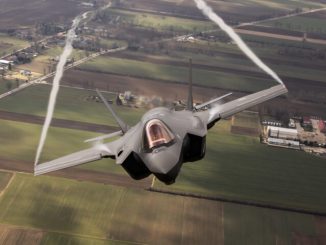
| Published June 13, 2025
In a significant escalation of the ongoing conflict, Iran has launched over 180 ballistic missiles towards Israel, marking its most extensive missile attack since the 2024 strikes. The barrage, which began on the evening of June 13, 2025, prompted air raid sirens across Israel and sent millions of civilians rushing to shelters. The missiles targeted major cities, including Tel Aviv and Jerusalem, with explosions lighting up the night skies. Reports indicate that a man was killed by falling missile debris in the city of Jericho in the occupied West Bank.
Background
This unprecedented missile assault follows Israel’s preemptive military operation, “Operation Rising Lion,” which targeted Iranian nuclear facilities and military infrastructure. The Israeli strikes resulted in the deaths of several high-ranking Iranian officials, including Revolutionary Guards commander Hossein Salami and Armed Forces Chief of Staff Mohammad Bagheri . In retaliation, Iran has vowed a “crushing and tooth-breaking response,” with Supreme Leader Ayatollah Ali Khamenei warning that “nowhere in Israel will be safe”.
Missile Details
Iran’s missile arsenal includes advanced systems such as the Qassem Bassir, a hypersonic medium-range ballistic missile capable of reaching speeds up to Mach 11 during reentry and Mach 5 at terminal phase. The Qassem Bassir is designed for rapid mass production and can be launched from mobile platforms, enhancing its survivability .
Israeli Defense Response
Israel’s defense systems, including the Arrow missile defense system, have been activated to intercept the incoming missiles. While many projectiles have been successfully intercepted, some have reportedly struck central and southern Israel. The Israel Defense Forces (IDF) have declared the country on high alert and are prepared for further retaliatory actions. Prime Minister Benjamin Netanyahu has stated that Iran “will pay for it,” emphasizing Israel’s readiness to respond decisively.
International Reactions
The international community has expressed deep concern over the escalating violence. U.S. President Joe Biden confirmed that American forces assisted in intercepting some of the missiles, underscoring the strategic alliance between the two nations. The United Nations Secretary-General António Guterres condemned the broadening conflict and called for an immediate ceasefire .
Implications of Iran’s Massive Missile Strike on Israel
Iran’s launch of hundreds of ballistic missiles at Israel marks the most serious escalation in the decades-long hostilities between the two nations. What began as a preemptive Israeli strike on Iranian nuclear and military infrastructure has now evolved into a full-scale exchange—potentially igniting a broader regional war.
Here are the key implications of this unprecedented escalation:
🔥 1. Regional War is No Longer a Possibility — It’s a Reality
-
Iran’s attack is not symbolic—it’s strategic and massive.
-
Israeli cities like Tel Aviv, Jerusalem, and Beersheba have been targeted directly, with casualties reported and infrastructure damaged.
-
Israel is expected to respond with greater force, potentially striking deep into Iranian territory or launching sustained aerial and cyber campaigns.
⚔️ 2. Widening Fronts and Proxy Involvement
-
Hezbollah in Lebanon, Shiite militias in Iraq and Syria, and Houthi rebels in Yemen are likely to join or escalate their own attacks on Israeli and Western targets.
-
The conflict is likely to spread into a multi-front war, involving direct and indirect combat in Lebanon, Syria, Iraq, Gaza, and the Red Sea.
🌍 3. Global Security and Economic Fallout
-
The Strait of Hormuz, a vital oil shipping lane, could become a flashpoint.
-
Oil prices are already spiking; further disruption could trigger a global energy crisis, pushing inflation and affecting global markets.
-
Airlines are re-routing flights across the region, and shipping firms are pausing routes due to missile threats.
🇺🇸 4. U.S. and Allies Pulled Deeper Into the Conflict
-
The U.S. military has already assisted in missile interception. U.S. bases in Iraq, Syria, and the Gulf could now face retaliatory attacks.
-
NATO may come under pressure to respond, particularly if Israeli cities suffer mass casualties or if Iran targets Western assets directly.
-
Diplomatic options are narrowing, forcing Washington and European allies to choose between restraint or deeper engagement.
☢️ 5. Collapse of Nuclear Diplomacy and Proliferation Risk
-
Any chance of reviving a nuclear deal (JCPOA or new frameworks) is now effectively dead.
-
Iran could accelerate its nuclear program without fear of international inspection, raising fears it may pursue a bomb as a deterrent.
-
Israel may consider a second wave of preemptive strikes targeting what remains of Iran’s nuclear capabilities.
🛰️ 6. Cyber and Asymmetric Attacks Will Surge
-
Iran’s retaliation won’t stop at missiles. Expect cyberattacks on Israeli infrastructure, including water, energy, and transit systems.
-
Covert operations may expand, including attacks on Israeli or Jewish targets abroad and global cyber disruption.
🧨 7. Humanitarian and Civilian Crisis Worsens
-
With missiles falling in urban centers and Israeli retaliation likely to strike Iranian population centers or proxies, civilian casualties will rise.
-
Thousands are already sheltering across Israel; displacement is expected in Lebanon, Syria, and possibly Iran.
-
Humanitarian groups are warning of limited access to affected zones, particularly in Syria, Iraq, and parts of southern Lebanon.
⚖️ 8. International Law and UN Paralysis
-
The conflict will likely result in accusations of war crimes as both sides claim civilian areas were targeted or used as shields.
-
The UN Security Council is paralyzed by division, with China and Russia backing Iran diplomatically, while the U.S., UK, and France support Israel.
💥 9. Precedent for Future Military Conflict
-
This is the first full-scale, state-on-state missile war between two major powers in the Middle East.
-
It sets a dangerous precedent for other rivalries (e.g., North Korea–South Korea, India–Pakistan) where preemptive strikes could justify retaliation without international mediation.
Overall Takeaway:
Iran’s massive missile strike on Israel marks a dramatic escalation that pushes the decades-long conflict into open and potentially prolonged warfare. This is no longer a covert battle of proxies or limited skirmishes—it is a full-scale confrontation with far-reaching regional and global consequences.
Both nations have entered a dangerous cycle of retaliation, with Israel’s preemptive strikes provoking Iran’s most aggressive response yet. The risk now extends beyond their borders, threatening wider Middle Eastern instability, disrupting global energy markets, and drawing international powers deeper into the conflict.
The overarching reality is stark: the region stands at the brink of a broader war, where diplomacy is sidelined, and the stakes—military, humanitarian, and geopolitical—are higher than ever. The world must brace for a volatile period ahead, where restraint and dialogue are urgently needed but increasingly difficult to achieve.
SOURCES: DAILYMAIL ONLINE – Iran launches hundreds of ballistic missiles towards Israel as it begins major response to attacks on its nuclear sites: Live updates
AP NEWS – Air raid sirens sound across Israel following an Iranian missile attack on the country
AOL – Explosions heard over Tel Aviv as Iran launches missile counterattack on Israel after punishing airstrikes





Be the first to comment